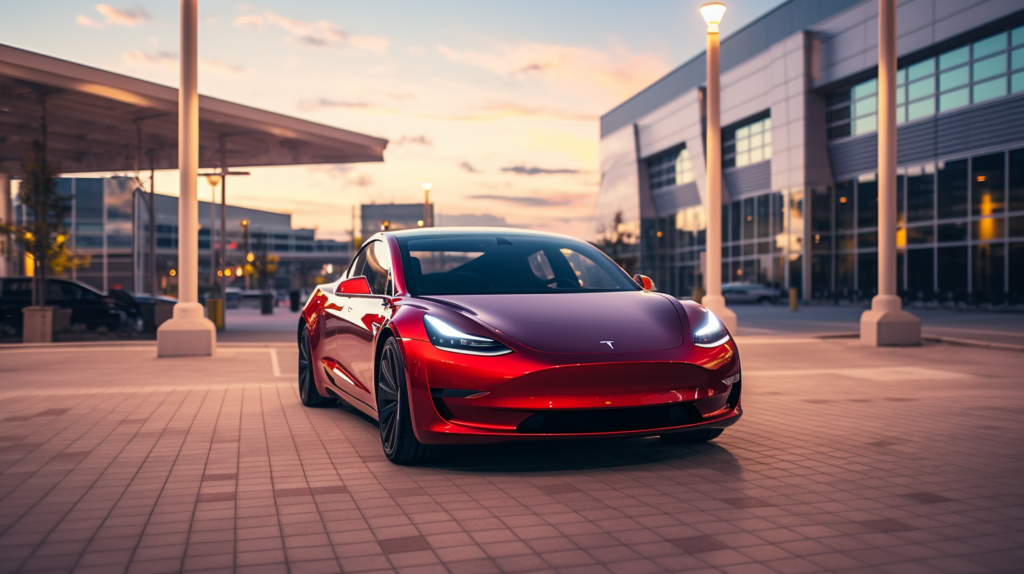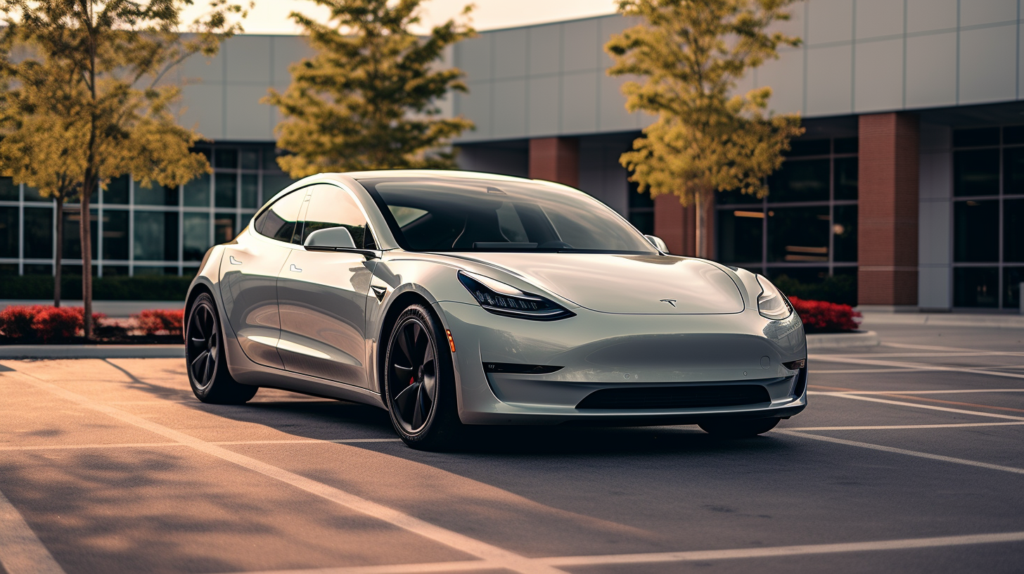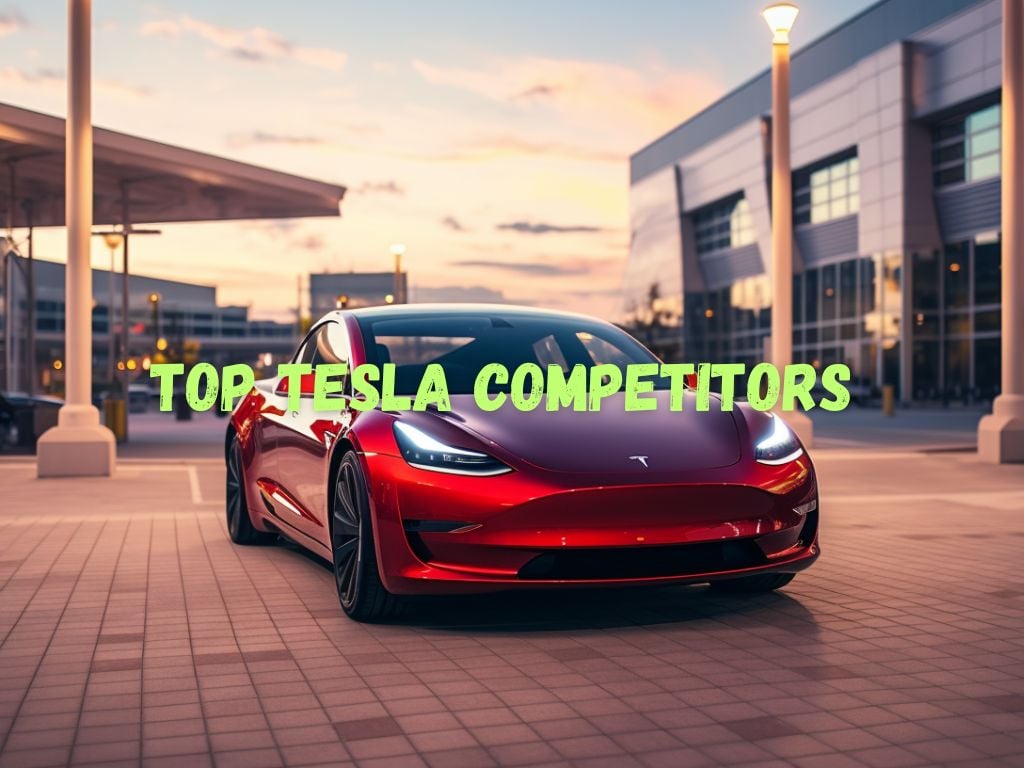Since its inception, Tesla has long been the undisputed leader in the electric vehicle (EV) market. The company spearheaded the modern electric car revolution and has often been considered the gold standard for others entering the industry.
With a combination of sleek design, cutting-edge technology, and highly-efficient electric range, Tesla puts up an excellent example of what an electric vehicle looks like.
However, the automotive landscape is continuously evolving, and the Tesla competitors are now recognizing the potential and importance of electric vehicles in today’s world.
Competition is vital in any industry, and all the major peers of Tesla are working hard to bring their own electric vehicles and technology innovations to the market.
Major automakers, as well as new players, are all joining the race. Here’s a look at some of the top Tesla competitors that have been making waves in the EV market.
Top Tesla Competitors That You Should Track
1. Rivian
Rivian is a US-based EV startup founded in 2009, focusing on designing and manufacturing electric vehicles, particularly in the adventure automotive categories. The automaker has caught the world’s attention with its all-electric pickup truck, the R1T, and an electric SUV, the R1S.
Rivian’s vehicles stand apart from the competition with their rugged design and off-road capabilities while offering 400 miles of range. With backing from big-time investors such as Amazon and Ford, Rivian is set to pose a direct challenge to Tesla’s forthcoming Cybertruck.
2. NIO
NIO, a Chinese electric vehicle company, was founded in 2014 and has risen to prominence by manufacturing electric smart SUVs. Their most popular model, the ES8, rivals Tesla’s Model X. Along with the ES8, NIO offers a more compact SUV, the ES6, and the EC6, which is a coupe-like crossover.
One innovation put forward by NIO is the battery-swapping technology, where depleted batteries can be replaced with new ones in less than 5 minutes. This battery-swap program provides a quick and convenient charging solution and gives NIO a distinct advantage in the EV market.

3. Lucid Motors
In the heart of Silicon Valley, Lucid Motors was founded by a former Tesla executive with the aim of offering luxury electric vehicles. Lucid’s Air sedan is a direct competitor to Tesla’s Model S, with stunning design, advanced technology features, and exceptional range.
Lucid claims that its Dream Edition can reach up to 517 miles on a single charge, outpacing Tesla’s Model S long-range variant. Add to the mix its ultrafast charging capabilities, and Lucid appears to be a formidable contender in the EV race.
4. VW Group: Audi, Porsche, and Volkswagen
The German automotive giant VW Group recognizes the potential of the EV market, and is determined to make its mark on the segment. Audi, Porsche, and Volkswagen are all preparing to take on Tesla with their electrified vehicles.
Audi’s electric vehicle offerings, such as the e-Tron and e-Tron Sportback, boast large-capacity batteries and impressive range.
Porsche, known for its performance cars, has brought the Taycan, the first all-electric sports car, to the table. The Taycan is a direct rival to Tesla’s Model S, with its powerful electric motors and impressive performance statistics.
Volkswagen, on the other hand, focuses on making electric cars accessible to a broader audience. The ID.3 hatchback and ID.4 crossover both offer an affordable way for buyers to enter the EV market.
5. Polestar
The electric subsidiary of Volvo, Polestar aims to produce high-performance, sustainably-designed electric vehicles. The Polestar 2 is their first all-electric car, and competes with Tesla’s Model 3 in the luxury compact sedan market.
The Polestar 2 impresses with an EPA-estimated range of 233 miles and advanced technology features such as a Google Android-powered infotainment system. The high-quality build and driving dynamics make it an attractive alternative to Tesla vehicles.
6. Ford
Ford, one of the world’s most prominent automakers, is also stepping up its EV game. With the Mustang Mach-E, an all-electric crossover, Ford has entered the segment that competes directly with Tesla’s Model Y.
The Mustang Mach-E has quickly become a popular choice among electric vehicle enthusiasts, with its well-appointed interior, 300 miles of range, and impressive performance numbers.

7. Honorable Mentions
- Nissan: Renowned for its Leaf model, one of the world’s best-selling electric cars, Nissan is a significant competitor in the electric vehicle market. The Nissan Leaf offers affordability and practicality, which appeals to a broad market segment.
- General Motors: GM has committed to an all-electric future, with several EV models in their portfolio and more to come.
- Li Auto: This Chinese EV manufacturer specializes in creating electric vehicles that also have a small internal combustion engine to generate extra electric power. The unique selling point of Li Auto is its range-extending electric vehicles, popular in regions where charging infrastructure is lacking.
- Honda: Although late to the electric revolution, Honda now offers the Honda e, a compact electric vehicle designed for urban environments.
These companies, in addition to several others across the globe, are working to ramp up their EV portfolios, aiming to reduce carbon emissions and join the move towards a more sustainable automotive industry.
Conclusion
Though Tesla remains the frontrunner in the electric vehicle market, an increasing number of automakers are venturing into the domain.
With innovative technology, competitive pricing, and targeted marketing, these newcomers offer a diverse range of options for environmentally conscious consumers.
The growing demand for electric vehicles and the push for a greener, more sustainable future means that Tesla’s competitors are here to stay.
As the market expands, the increased competition will drive innovation, benefiting not only consumers but also the environment.


 Tags:
Tags:










